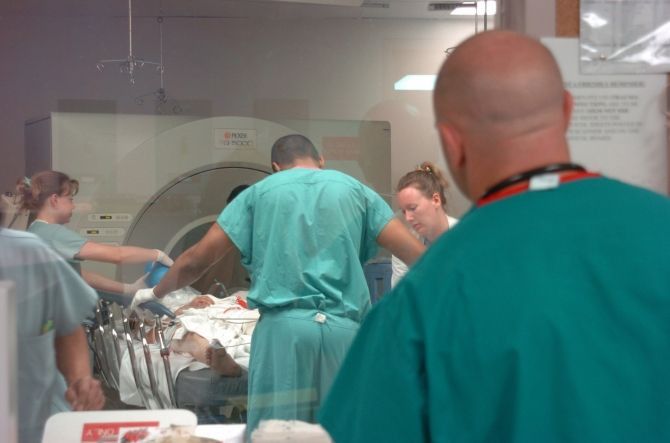CT Scans Linked to Brain Cancer Risk in Children

Children who are exposed to radiation from CT scans are at risk of developing brain cancers, according to a new study.
Researchers estimate that in every 10,000 cases where a child aged 10 or younger underwent a CT scan there will be one extra case of leukemia than what is generally expected.
For the study, the researchers from Newcastle University and the National Cancer Institute in the US analyzed medical records of some 180,000 people under 22 years of age who had a CT scan between 1985 and 2002.
They then linked data about CT scans to data regarding the number of people diagnosed with brain cancers.
The research team found that 135 out of nearly 177,000 people were diagnosed with brain cancer.
"CT scans are accurate and fast so they should be used when their immediate benefits outweigh the long-term risks. However, now we have shown that CT scans increase the risk of cancer, we must ensure that when they are used they are fully justified from a clinical perspective," said Dr. Mark Pearce, Reader in Lifecourse Epidemiology at Newcastle University in a press release. Dr. Pearce is the lead author of the study.
"The immediate benefits of CT outweigh the potential long-term risks in many settings and because of CT's diagnostic accuracy and speed of scanning, notably removing the need for anaesthesia and sedation in young patients, it will, and should, remain in practice for the foreseeable future," Dr. Mark Pearce said to The Guardian.
65 million adults and 5 million children get CT scans each year in the U.S, according to experts.
Previous studies have maintained that CT scans as a diagnostic tool must be used only when absolutely necessary. An article published in the journal Pediatrics says that physicians must talk to parents about the benefits and risks involved with CT scans prior to the actual procedure.
"Further refinements to allow reduction in CT doses should be a priority, not only for the radiology community, but also for manufacturers. Alternative diagnostic procedures that do not involve ionising radiation exposure, such as ultrasound and MRI, might be appropriate in some clinical settings," said Dr. Pearce, reports Guardian.
Experts feel that the judgment, of whether a CT scan is really necessary or not, lies with the physicians.
"This study suggests there is around a 1 in 10,000 chance that a young person's CT scan will give them leukemia over the next 10 years. This is important, but the CT scan may be even more important - a judgment has to be made." David Spiegelhalter an expert from Cambridge University, told Reuters.



























